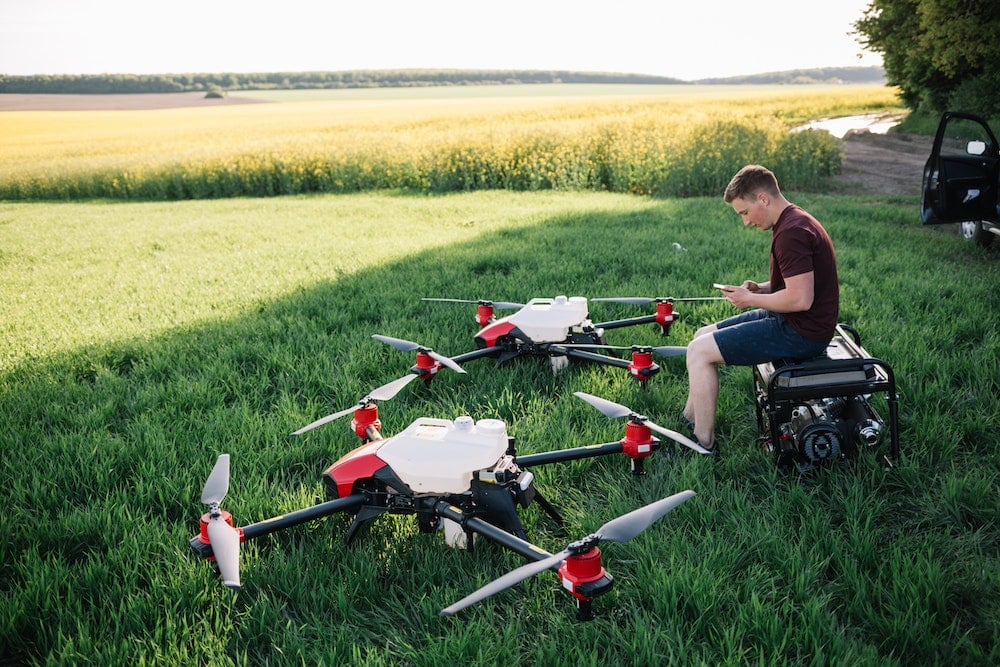What Are the Latest Techniques in Precision Agriculture for UK Farmers?

Precision agriculture is a modern farming method that uses data-driven technology to improve the efficiency and productivity of a farm. Nowadays, it's not uncommon for UK farmers to use statistics, GPS and satellite imagery to manage their crop growth and livestock. In this informational article, we will explore the latest technologies in precision agriculture that are currently revolutionising the agricultural sector in the UK.
The Science Behind Precision Farming
The principle behind precision farming is simple: use data to make informed decisions. Precision agriculture involves the detailed study of soil conditions, weather patterns, crop behaviour and livestock health to formulate more effective farming strategies. Farmers utilise various technological applications to collect and analyse these data sets.
Avez-vous vu cela : What Are the Essentials for Crafting a Winning Pitch to UK Investors?
Satellites, drones and ground sensors are commonly used to gather detailed information about the farm. This data is then fed into advanced software systems that can interpret the information and provide actionable insights. By reading weather patterns and soil conditions in real time, farmers are able to optimise their resources, reduce waste and increase crop yields.
Software systems capable of interpreting farm data are becoming increasingly complex and capable. They can provide farmers with recommendations on when to plant, where to plant, when to water and when to harvest. Some systems can even predict disease outbreaks, helping farmers to protect their crops and livestock before any serious damage occurs.
Avez-vous vu cela : What Sustainable Materials Should York Home Builders Consider Using to Reduce Environmental Impact?
The Market for Precision Agriculture in the UK
The market for precision agriculture in the UK is booming. The demand for more efficient, data-driven farming methods has grown significantly in recent years. This is partly due to the green shift in society and the realization that traditional farming methods often lead to unnecessary waste and environmental degradation.
The UK government is also heavily involved in the promotion of precision agriculture. There have been several initiatives aimed at encouraging farmers to adopt these technologies. The government has also set up funding schemes to help farmers invest in new technologies and training.
Despite the initial costs, many farmers see the long-term economic benefits of precision agriculture. By increasing efficiency and reducing waste, farmers can make substantial savings and increase their profit margins. In addition, the enhanced productivity can also lead to an increase in the farmer's share of the agricultural market.
Precision Agriculture Technologies
There are many exciting technologies within precision agriculture. These technologies focus on improving efficiency, reducing waste, and increasing profitability on farms.
- Geospatial Technologies: Geographic Information System (GIS) and Global Positioning System (GPS) technologies are used to map farm fields, monitor crop growth, and navigate machinery.
- Remote Sensing Technologies: These include the use of drones or satellites to monitor soil conditions and detect disease in crops and livestock.
- Variable Rate Technologies (VRT): These allow farmers to apply inputs such as fertilizers, pesticides, and water at varying rates across a field, according to the need.
- Automated Machinery: This includes self-driving tractors and other machinery that can perform tasks without human intervention.
- Data Analytics: This involves the use of software to analyze the large amounts of data collected by the other technologies, helping farmers make informed decisions about their operations.
Premium Services for Precision Farming
Various companies offer premium services to assist farmers in implementing precision agriculture techniques. These services often include the use of advanced software systems, on-site sensor equipment, drone surveillance and data analysis.
Many of these premium services are subscription-based. Farmers can choose a package that best suits their needs and budget. These services can provide valuable insights and help farmers optimise their operations. By using these premium services, farmers can often see a return on their investment within a few seasons.
The Future of Precision Agriculture
The future of precision agriculture in the UK looks bright. The growing demand for sustainable food production and the increasing availability of advanced farming technologies suggest that precision farming will continue to grow in popularity.
As technologies continue to advance, we can expect the techniques used in precision farming to become even more sophisticated. Artificial intelligence (AI) and machine learning are likely to play a significant role in the future of precision agriculture. These technologies can help to automate farming processes, predict trends, and improve decision-making.
While the adoption of precision farming requires an initial investment in technology, the potential benefits are enormous. Efficiency improvements, cost savings, and increased yields can all contribute to a stronger, more sustainable agricultural sector in the UK.
As we head further into the future, it's clear that precision agriculture will play a crucial role in shaping the agricultural landscape of the UK. With the right investment and support, UK farmers can lead the way in sustainable, technology-driven farming.
The Impact of Precision Agriculture on Farm Businesses
Precision agriculture plays a significant role in shaping the future of farm businesses. The precision farming methods, which are highly data-focused, allow farmers to make more informed decisions about their farming processes. This enables them to improve the efficiency and yield of their farms, often leading to increased profitability.
Farmers in the UK, facing variable soil conditions, erratic weather patterns and pests, can benefit from the precision agriculture techniques. A premium statistic shows a considerable increase in farm holdings in England adopting these techniques. The use of data analytics, geospatial technologies, remote sensing technologies, variable rate technologies, and automated machinery is becoming more prevalent among these farms.
In addition to increasing yields and reducing waste, precision agriculture also has a significant impact on the environment. Traditional farming methods can often lead to overuse of resources and pollution. In contrast, precision farming techniques are designed to optimise resource use and reduce environmental impact.
For example, the nutrient software can analyse soil conditions and provide recommendations for the optimal amount of fertilisers to be used. This reduces the risk of over-fertilisation and the associated environmental damage. Similarly, variable rate technologies (VRT) can ensure that water and pesticides are used only where needed, reducing waste and environmental impact.
The Growth of the Precision Agriculture Market
The precision agriculture market in the UK is experiencing robust growth. The market size has been expanding due to the increasing demand for precision farming techniques and the support provided by the UK government. The government has been encouraging farmers to adopt these technologies to improve the efficiency of their operations, reduce waste, and minimise environmental impact.
Additionally, the rising awareness among farmers about the benefits of precision farming methods is also contributing to the growth of the market. In the UK, the share of farms using precision agriculture methods has been increasing. The farm holdings in England, for example, have seen a notable rise in the adoption of these techniques.
Simultaneously, the development of advanced farming technologies, such as drones, AI, machine learning, and automated machinery, is driving the farming market's expansion.
Conclusion
The adoption of precision agriculture is transforming the agricultural sector in the United Kingdom. By using advanced technologies to gather and analyse data, farmers can make more informed decisions, optimise their resources, and increase their yields. This not only improves the profitability of farm businesses but also reduces waste and minimises environmental impact.
The market for precision agriculture in the UK is growing, driven by the increased demand, government support, and advancements in technology. Farms in England are increasingly adopting these methods, leading to a rise in the share of precision farms.
In the future, with the continued development of technologies like AI and machine learning, precision agriculture techniques are likely to become even more sophisticated. This will further drive the growth of the market and the adoption of these methods among UK farmers.
In conclusion, precision agriculture is set to play a crucial role in shaping the future of farming in the UK. With the right investment and support, UK farmers can continue to lead the way in sustainable, technology-driven farming.
